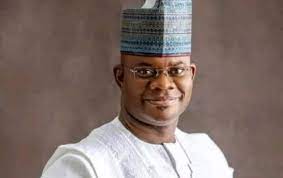Financial Autonomy for Kogi Varsity: Yahaya Bello’s Masterstroke
By Nafisat Bello
“Universities should be bastions of freedom in any society. They should be free from government interference in their primary purposes of research and teaching; and control their own academic governance.”
– Chris Patten, Chancellor of University of Oxford
Education, especially university education, is the fulcrum or pillar upon which the development, empowerment, liberation, and emancipation of members of any society, especially the youth, depends.
Universities all over the world are centers of learning and research and the larger society is supposed to be able to rely on their resource base to solve problems. But the universities must be rich in facilities like libraries, laboratories and also quality manpower to be able to find solutions like drugs and vaccines for diseases and quality, well-researched solutions to socio-economic challenges.
One of the ways of ensuring that universities are able to meet up with these demands is to grant them the license or liberty to formulate their revenue generating policies and also make use of the proceeds to improve on their infrastructure.
University autonomy is simply the self-governance, self-determination, independence or the ability of a university to decide for itself what policies, programmes or line of action to take so as to enhance the achievement of the vision and mission of the university.
In the 21st century, university autonomy is essential to address the academic, administrative, and management challenges in the citadels of learning.
The degree of autonomy in higher institutions is dependent on the level of administrative control, financial dependency and academic freedom, which relates to control in the area of teaching and research as well as sourcing and managing of resources.
It will interest readers to know that university education was developing rapidly over the years during the period of colonial occupation. But in recent decades, the quality of graduates and the standard of teaching and learning began to deteriorate as a result of the proliferation of universities without corresponding funds needed to ensure the standards are maintained. The country’s tertiary education sub-sector gradually moved from quality to quantity.
Autonomy is the way forward for all tertiary institutions. It is also one of the key issues that the Academic Staff Union of Universities (ASUU) has been agitating for, for decades.
Read Also:
University autonomy is minimum global standards. It is no coincidence therefore that top universities across the world are independent. The president of Harvard University, Boston is answerable to Harvard Corporation which supervises the process of his appointment. In Ghana, the VC of Kwame Nkrumah
University of Science and Technology, Kumasi is also appointed by the Governing Council. University of Ibadan adjudged as the best University in Nigeria by the National Universities Commission (NUC), also appointed it’s 12th VC in 2015 through a rigorous, in-house process, devoid of any political interference. This is what we need to replicate in other universities across the country.
President Muhammadu Buhari also once lamented that Nigerian Universities had fallen behind in global ratings as the highest one was in 1296th position, according to the Webometrics ranking of 2015. University autonomy is the critical thing that needs to be done to reverse this unimpressive ranking.
Governor Bello as Game Changer
Since coming on board in 2016, Governor Yahaya Bello has made education his topmost priority. He has increased the state budgetary allocation to education. He has also undertaken the renovation and construction of hundreds of primary and secondary schools across the state.
The state tertiary institutions have also had a fair share of the governor’s attention. He set up the University of Science and Technology with the aim of equipping learners with needed vocational and technical skills to reduce the incidence of graduate unemployment.
This time around, the governor has shifted his attention to the Kogi State University now called Prince Abubakar University which has suffered many challenges in the past ranging from poor leadership, low funding, poor staff welfare and cultism.
Prince Abubakar Audu University which is located at Anyigba is the first university in the state, established in 1999 by Prince Abubakar Audu, the late former governor of the state.
Governor Bello recently announced that the Varsity had been granted financial autonomy. This will enable the Management of the School to make use of its Internally Generated Revenue (IGR) as this will go a long way in providing the much needed infrastructural, academic and social amenities to the institution.
He made the announcement while delivering his speech at the 6th annual convocation ceremony held in the school. He commended the School authority for its diligence in keeping the place viable despite challenges, adding that the financial autonomy would empower them to take the School to higher levels .
During his speech, he stated that; “I have carefully listened to your demands, challenges and the first request I will grant is the 100 percent management of the University Internal Generated Revenue by the management of the institution.”
The governor was awarded a honorary degree in Public Finance for his passion for the education sector.
In a nutshell, the financial autonomy granted by the governor will help the school management to be responsible in making decisions and also give them the ability to innovate and focus on providing what is needed within the School premises. This will definitely increase their job satisfaction also.
The end goal for all Kogites is to see the University become one of the best within Nigeria and beyond.
















